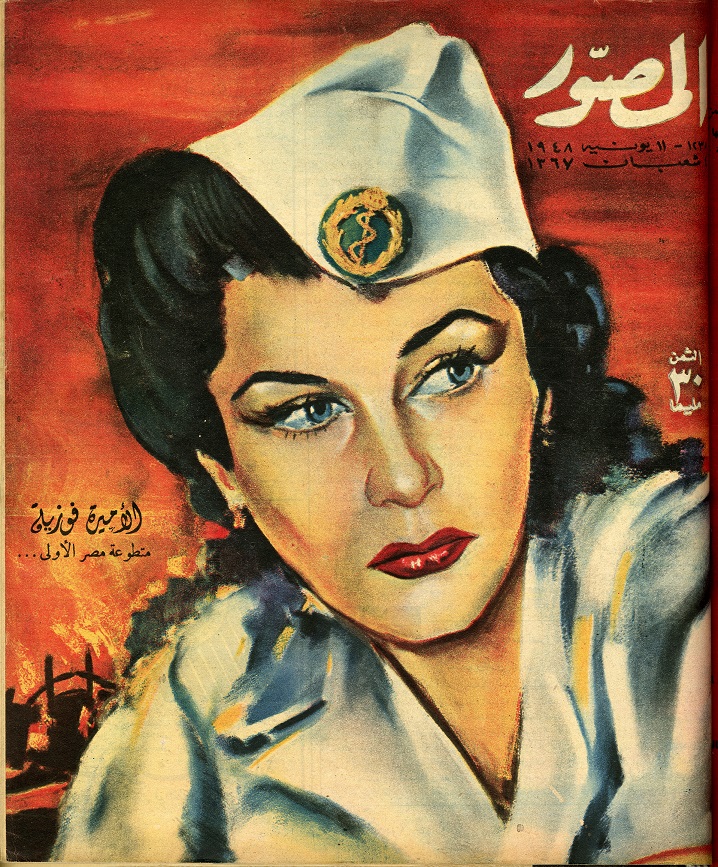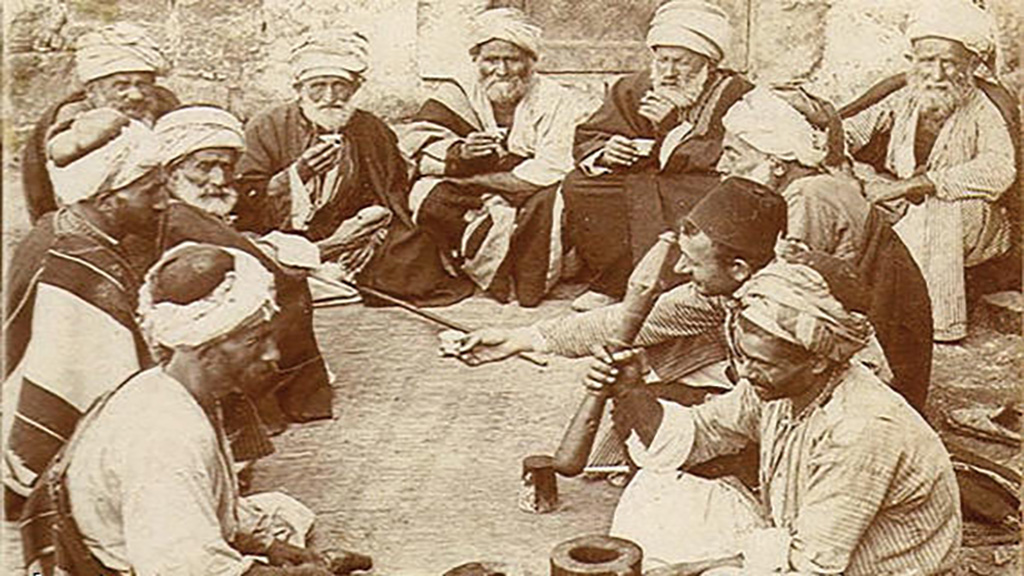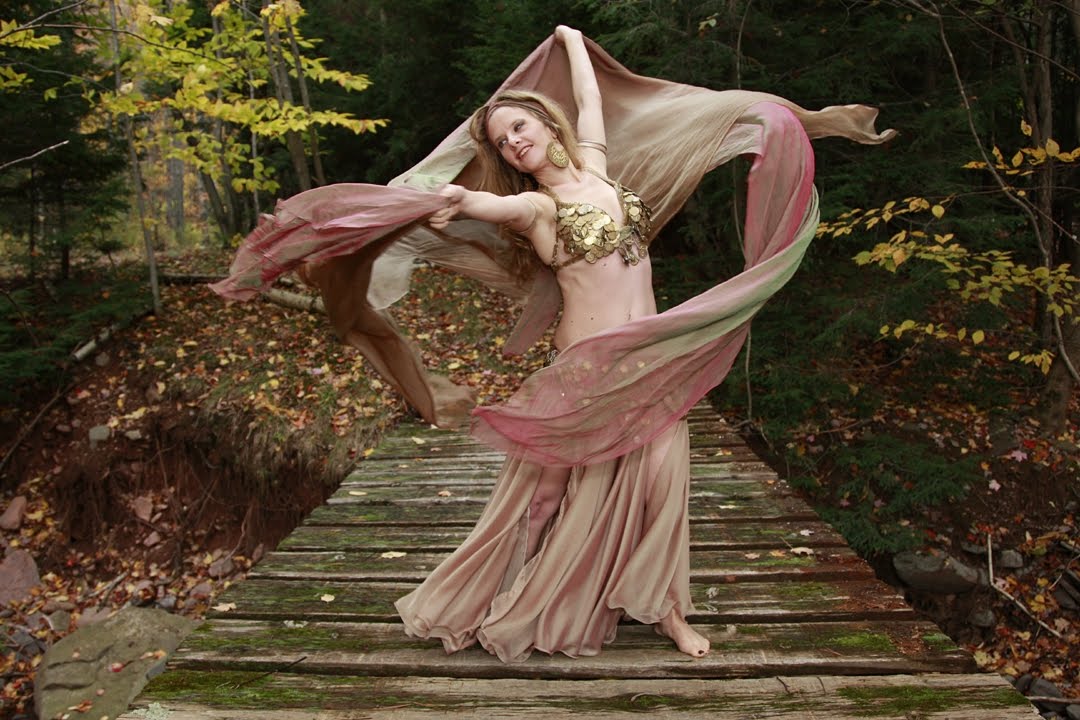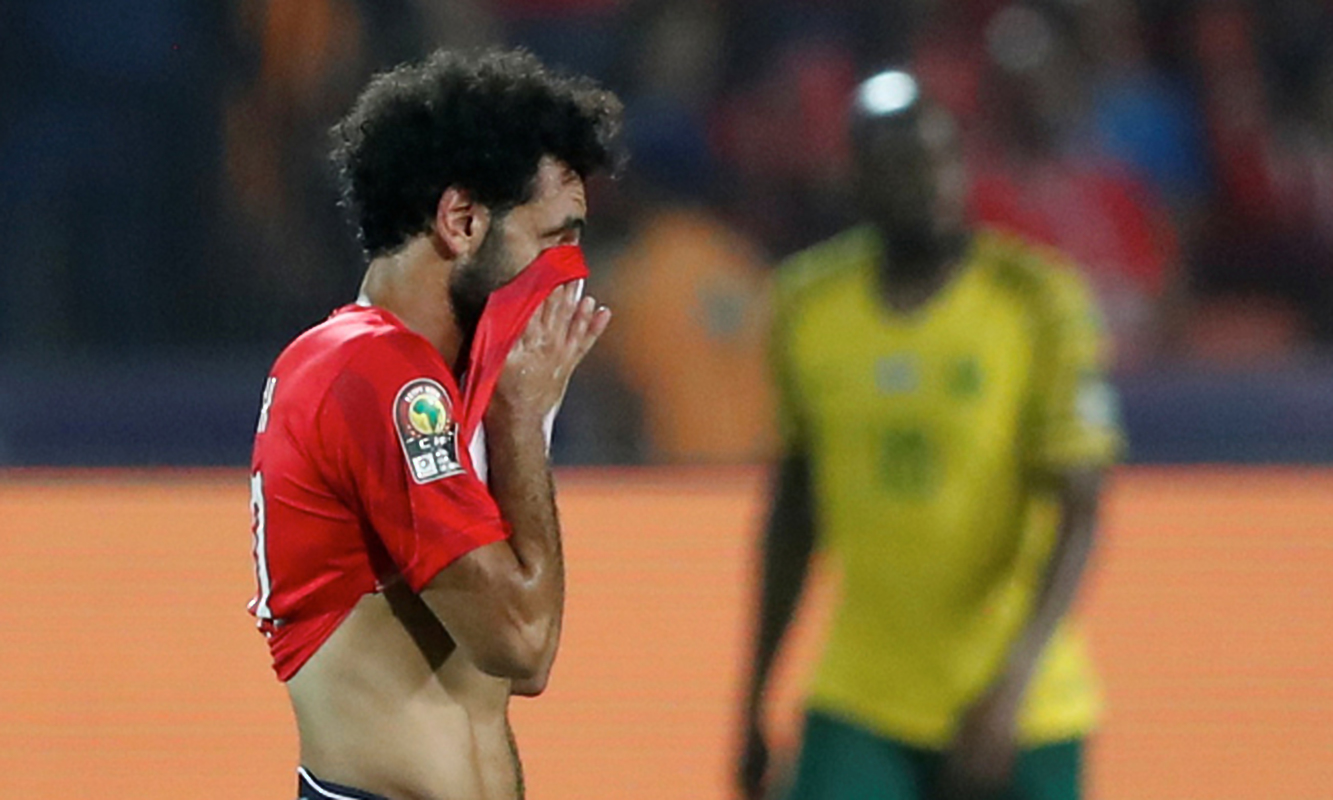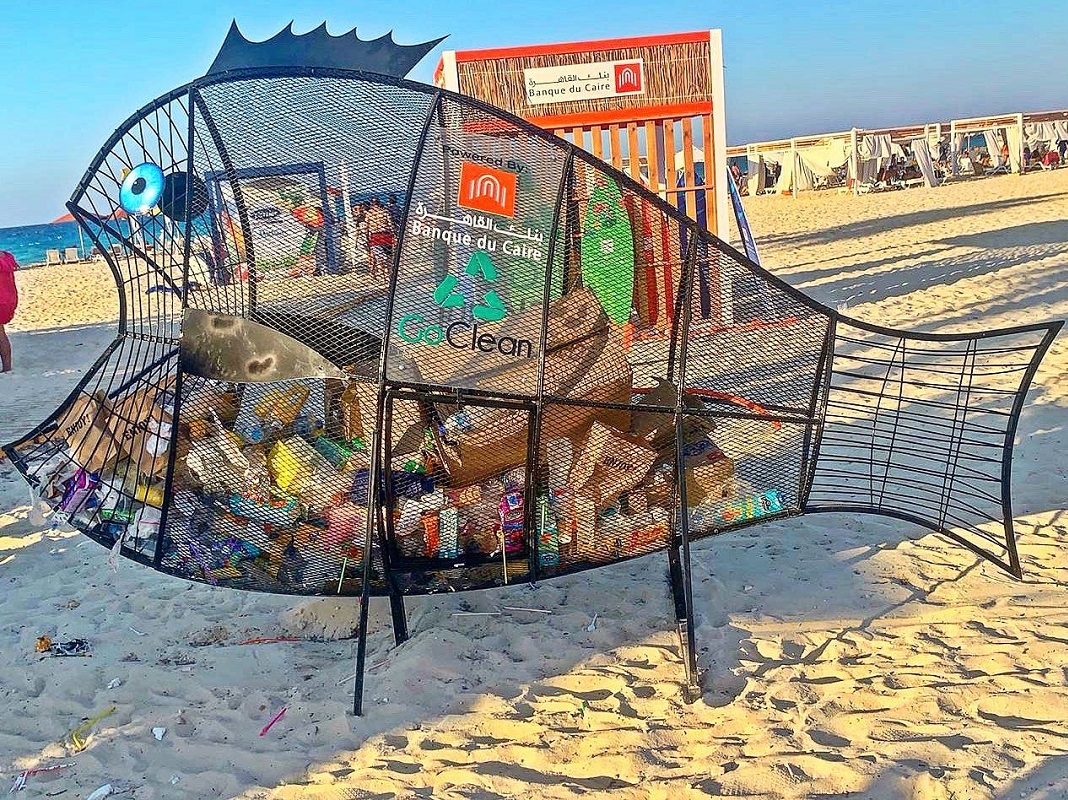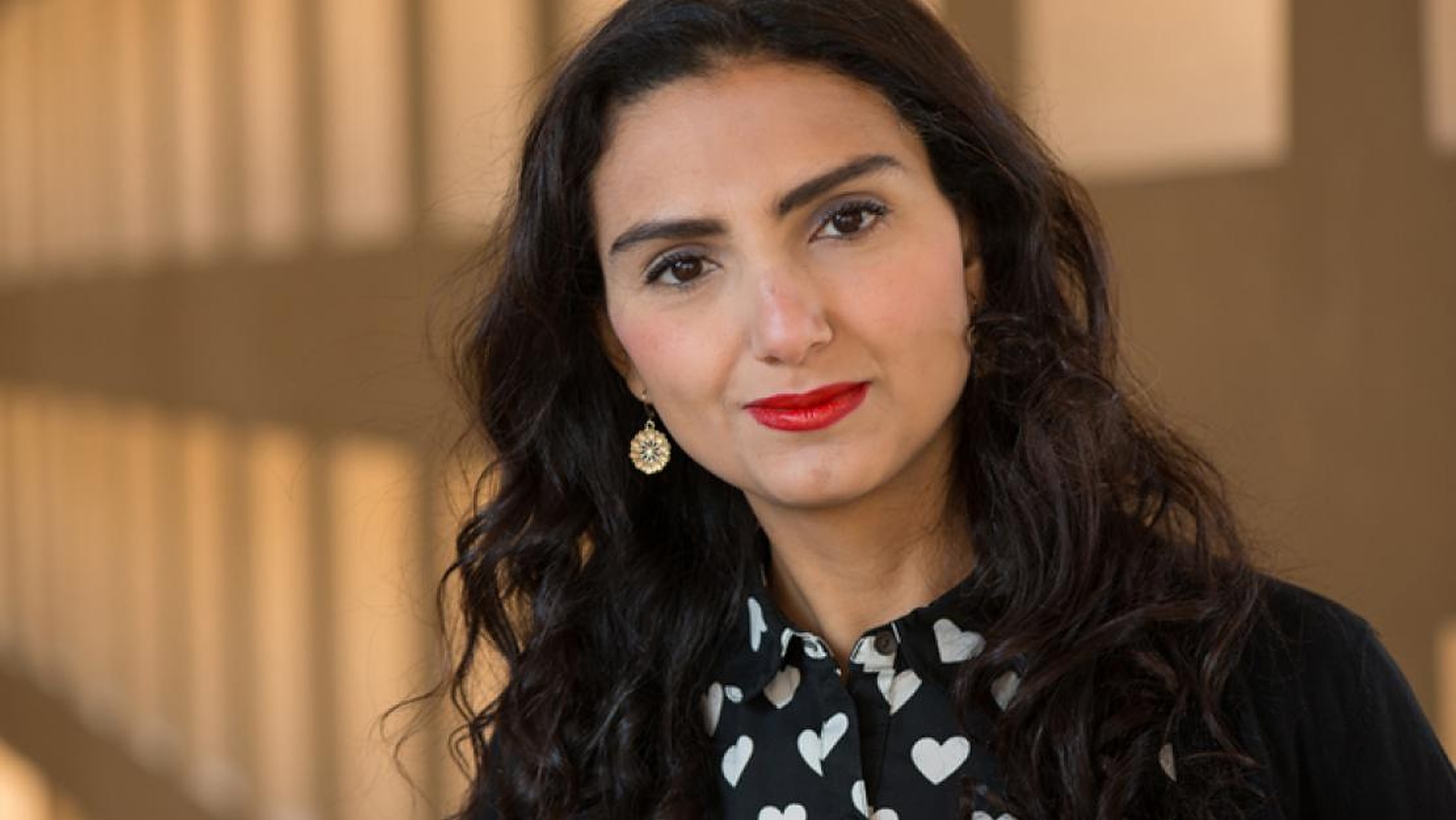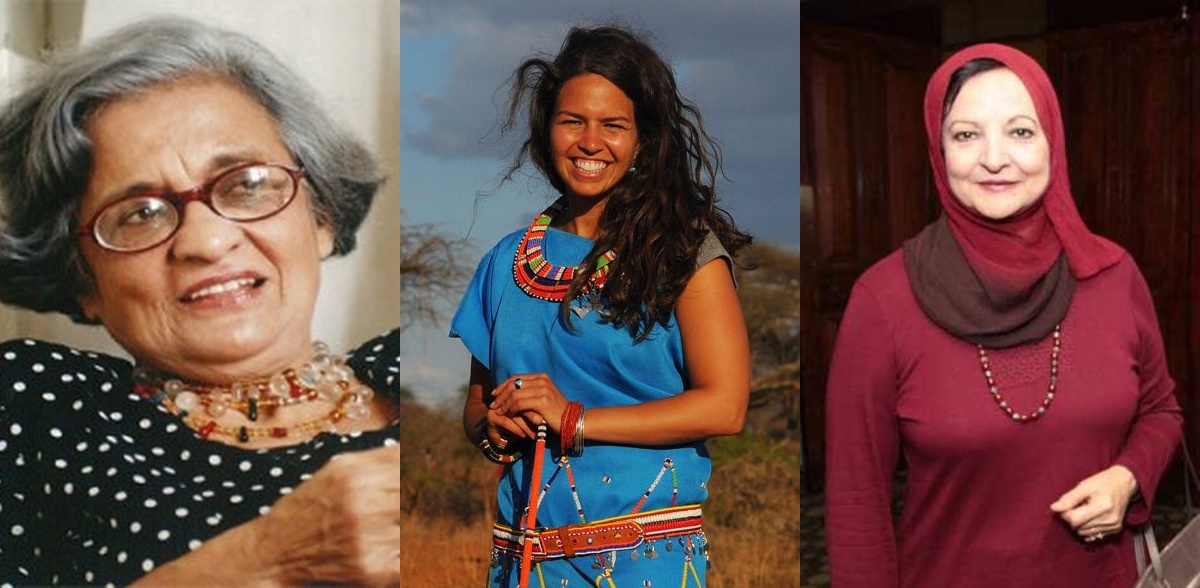If one were to list the most influential and important scenes in the history of Egyptian cinema, a strong contender would have to be the ending of the 1978 movie Climbing to the Bottom (El Soud Ela Al Hawia). Actress Madiha Kamel plays the character of Egyptian spy Heba Selim, or ‘Abla’ in the film, who was on a plane approaching Cairo airport after her arrest. Next to her was an intelligence officer, who pointed at the pyramids and the Nile and said the famous line, “and this is Egypt, Abla.” At a time when Egyptian President Sadat was planning his next step for peace with Israel as part of the Camp David Accords, young Heba Selim was in the shadows working with the Mossad to seduce an Egyptian army officer and gather confidential information to help Israel defeat Egypt during the Yom Kippur War. In her own words, she reckoned that she was also working for peace, telling General Rifaat Osman Gabriel in her last days, “I am not a spy, but I work in order to preserve the human race from destruction.” While her definition of peace clearly…
Princess Fawzia: AUC Exhibition Highlights Forgotten Royal Figure
An elegant figure, with a delicate face, clad in royal jewelry first then a military nurse uniform. Scenes of a smiling yet politely composed couple waving at an Iranian crowd. A princess of Egypt turned into a queen of Iran, a dutiful sister, a concerned mother, a courageous and active female royal figure – so seems Princess Fawzia Fouad, in an inaugurated exhibition at the American’s University in Cairo (AUC). The exhibition, titled ‘Princess Fawzia: The Duality of Egyptian Womanhood Through Western and Egyptian Eyes’ was inaugurated through a combined effort of the Rare Books and Special Collections Library at AUC and Jana Amin, a 10th grade Egyptian American whose passionate research showcases the portrayal of not only the princess but various royal women in national and international media. The exhibition itself is based on archives pulled from the RBSCL as well as from KEW National Archive in the United Kingdom, namely photos, magazine covers and newspaper clippings covering the life of Princes Fawzia, the sister of king Farouk, from her birth all the way to her second marriage to Egyptian diplomat Ismail Chirine Bey. As per an official press…
Egypt’s Coffee Culture: From Roasted Beans to Social Revolution
Coffee is no stranger to the Arab and Middle Eastern cultures, especially Egypt, where one can find all sorts of coffeehouses in every corner. But coffeehouses were not always welcomed in the country. Coffee first arrived to Egypt in the 16th century. According to Jonathan Morris’s book ‘Coffee: A Global History’, a group of Al-Azhar students at the time witnessed some Yemeni expatriate students sipping a dark drink before studying or performing long religious rituals. Naturally, the Al-Azhar student’s curiosity grew; it wasn’t long before they decided to try the same drink hoping to achieve the desired effects. People began consuming the bitter drink in mosques during dhikr, a Sufi ritual that revolves around the remembrance of God, and other religious festivals such as mulid, a celebration of the birth of Prophet Mohamed. Not long after, coffeehouses started opening in every corner commodifying coffee thus rendering them accessible to the mass. These coffeehouses became akin to social clubs, allowing people to gather in public spaces just to drink coffee while conversing. The idea of “gathering” drew the attention of authorities who equated coffee with alcohol. It was then that the…
10 Egyptian Films to Participate in This Year’s Malmo Arab Film Festival
The 9th annual edition of the Malmo Arab Film Festival (MAFF), one of Europe’s biggest film festivals dedicated to celebrating and highlighting Arab and North African filmmakers, has been announced. Slated to take place from October 4th through to the 8th, MAFF’s 2019 will feature 120 films from across the MENA region. Boasting the biggest audience in Southern Sweden, the festival serves as “a platform for collaboration between the Nordic and Arab film industries,” according to MAFF’s website. This year’s edition of the festival will see 10 Egyptian films participate in different categories, from critically-acclaimed and commercial hits like Yommedine (Judgment Day) and Turab El Mas (Diamond Dust), to indie shorts like Ma Taalash An El Hageb (Eyebrows), to Egypt’s first animated feature El Fares wi El Amira (The Knight and the Princess). ‘’Since the establishment of the festival in 2011, Egyptian cinema has been very present every year, and it is a logical thing because you cannot organize an Arab cinema festival without presenting the very best in the oldest and largest Arab cinema industry,” MAFF Director Mohamed Keblawi said in a statement, according to Egypt Today. “Last year,…
From Ghawazi to Safiyya of Esna and Kuchuk Hanem: The History of Belly Dancing in Egypt
Known as the capital for various forms of arts in the entertainment industry, Egypt has become known for its belly dancing providing an opportunity for female performers to advance the entertainment industry. Although there is a constant debate on the origins of belly dancing, the art was, and still is, eroticized by many travelers and tourists, some of which visit Egypt just to explore that scene. The origins of the dance in Egypt can be traced back to the 19th century, where there were two groups of women who participated in the entertainment industry; ‘awalim’ and ‘ghawazi’. The ‘awalim’ were a group of scholarly women who wrote poetry, sang songs and composed music, and improvised lyrics for ‘mawal’ or ballads, a feat they were highly valued for. They were an exclusive celebrity-like group who performed in the harems in the presence of women only, however their voices were audible by both women and men. The ‘awalim’ were not accounted for in any travelers’ book. Perhaps because the travelers have not been exposed to them. The other group of women were called ‘ghawazi’ who mainly danced unveiled in public spaces like…
Mohamed Salah Stands by Controversial Amr Warda Comments in New CNN Interview
In an exclusive interview with CNN’s Becky Anderson, Mohamed Salah reiterated his controversial position on the Amr Warda sexual harassment scandal. “My position is still the same. As I told you, the people misunderstand what I am saying,” he told the host. “What I meant to say is that [this] happened before and it is happening now, [Warda] has to get treatment or rehabilitation to make sure that it is not going to happen again.” Released today, as part of CNN’s Connect the World, the interview focuses on Salah’s views on gender equality in the Middle East and North Africa, as well as Egypt’s underwhelming Africa Cup of Nations (AFCON) 2019 performance. Earlier this year, several women went public with allegations of sexual harassment against Warda. One of the victims was Egyptian-British model Merhan Keller who shared screenshots of her conversations with the disgraced footballer. Other women came forward disclosing more evidence of his unwanted sexual advances and verbal abuse when turned down. The controversy came to a head when Warda was eliminated from Egypt’s national team during AFCON season, then reinstated after several players, including Salah, came to his…
Egyptian Eco-Startup and Banque du Caire Launch Campaign to Clean Up Sahel’s Beaches
Egyptian eco-startup Go Clean has announced the launch of a joint initiative with Banque du Caire to maintain some of Sahel’s most popular beaches. The company has installed large fish-shaped trash containers on the beaches of Bianchi, La Vista, and Hacienda Bay to raise awareness about the waste crisis facing our oceans today and collect paper, plastic, and metal waste. “The idea came to us because the founder of Go Clean, Mohamed Hamdy, is really passionate about the ocean, and now that it is summer, people will be going to the beach and discarding anything and everything into our waters,” says Go Clean PR Director Nancy Moussa. “The trash can is shaped like a fish because we want people to visualize what they are doing when they discard their waste at the beach. It ends up feeding the fish and hurting marine life.” Go Clean’s team will then proceed to transporting, sorting, and recycling the garbage. The company also announced it would be making charitable donations commensurate with the weight of the waste it collects. The startup had previously launched another recycling campaign in Sahel, collaborating with local tutoring service…
‘I Want People to Think Deeply About the Human Experience’: Exclusive Interview with Reem Bassiouney
Known to have existed for almost thirty centuries, Egypt’s soul has always been deeply historical. In every direction, and behind every historic building, there is a rich past of people who came from elsewhere and then settled, built and fought for this land. From the pyramids, we see the past of the ancient Egyptians, and similarly, from other iconic buildings like the Sultan Hassan mosque, there is also the past of the Mamluks who, in contrast to what many think, also perceived themselves as Egyptians. In her new 2018 fiction novel, ‘The Mamluk Trilogy’ (Awlad El Nas), renowned Egyptian writer Reem Bassiouney approaches history with a deeper outlook on the human experience of the Mamluks in Egypt, who originally came as owned slaves and then later ruled Egypt for around 267 years. With her introspective, engaging and gentle writing, Bassiouney introduces new and fresh ideas on identity, history and what it means to be Egyptian. Egyptian Streets sat with Reem Bassiouney to discuss the fascinating trilogy and her views on identity. She is a professor of sociolinguistics at The American University in Cairo, and has written several novels that were…
A Scientific Legacy: Celebrating Five Female Egyptian Scientists
On the occasion of National Science Day in Egypt, Egyptian President Abdel Fattah Al Sisi acknowledged the role of scientists and their scientific contributions to the country. “Allow me in my name and in the name of the great Egyptian nation to salute Egyptian scientists who deserve all the appreciation for their relentless work,” he stated in a speech according to Al Ahram. Each year, the presidential cabinet focuses on one particular theme for the year, as such, 2019 was declared the “Year of Education”. While Egypt is not particularly known for its scientific legacy, there are numerous scientists and scholars who have made important discoveries, with the least known of them are the female scientists. Here is a quick glance at five female Egyptian scientists whose work is memorable and impactful to this day. 1. HILANA SEDAROUS Hailed as the first modern Egyptian doctor, Sedarous is a largely enigmatic figure whose history is not well-known. What is known about her, nonetheless, is that the Tanta-born aspiring doctor went against the conventions of her time by travelling to London in 1922 where she took on mathematics and medicine. After 1919,…


